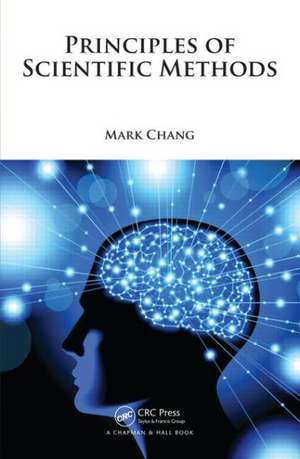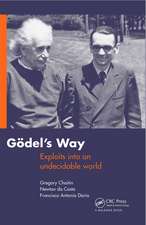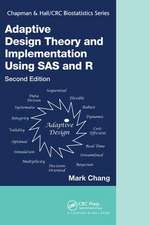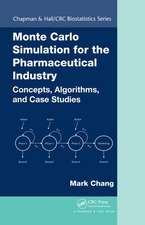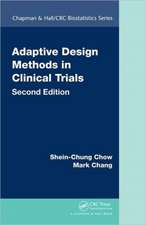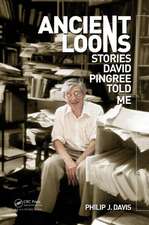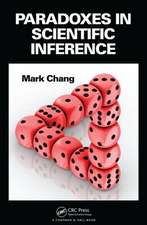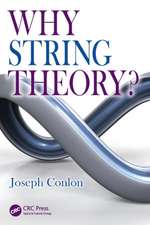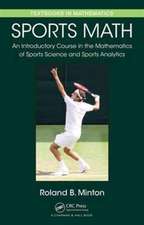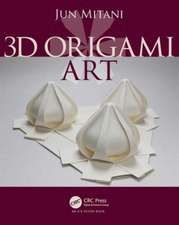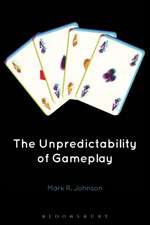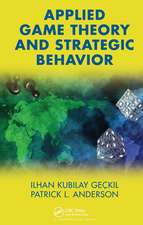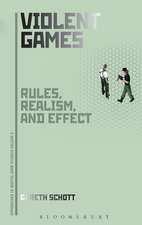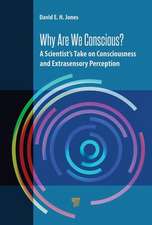Principles of Scientific Methods
Autor Mark Changen Limba Engleză Paperback – 22 iul 2014
The book shows how the principles are not only applicable to scientific research but also to our daily lives. The author explains how scientific methods are used for understanding how and why things happen, making predictions, and learning how to prevent mistakes and solve problems. Studying the principles of scientific methods is to think about thinking and to enlighten our understanding of scientific research.
Scientific principles are the foundation of scientific methods. In this book, you’ll see how the principles reveal the big ideas behind our scientific discoveries and reflect the fundamental beliefs and wisdoms of scientists. The principles make the scientific methods coherent and constitute the source of creativity.
Preț: 337.75 lei
Preț vechi: 386.51 lei
-13% Nou
Puncte Express: 507
Preț estimativ în valută:
64.64€ • 67.23$ • 53.36£
64.64€ • 67.23$ • 53.36£
Carte tipărită la comandă
Livrare economică 15-29 aprilie
Preluare comenzi: 021 569.72.76
Specificații
ISBN-13: 9781482238099
ISBN-10: 1482238098
Pagini: 247
Ilustrații: 101 black & white illustrations, 11 black & white tables
Dimensiuni: 156 x 234 x 18 mm
Greutate: 0.43 kg
Ediția:1
Editura: CRC Press
Colecția Chapman and Hall/CRC
ISBN-10: 1482238098
Pagini: 247
Ilustrații: 101 black & white illustrations, 11 black & white tables
Dimensiuni: 156 x 234 x 18 mm
Greutate: 0.43 kg
Ediția:1
Editura: CRC Press
Colecția Chapman and Hall/CRC
Public țintă
Professional Practice & DevelopmentCuprins
Science in Perspective. Formal Reasoning. Experimentation. Scientific Inference. Dynamics of Science. Controversies and Challenges. Case Studies. Bibliography. Index.
Notă biografică
Mark Chang is vice president of biometrics at AMAG Pharmaceuticals and an adjunct professor at Boston University. Dr. Chang is an elected fellow of the American Statistical Association and a co-founder of the International Society for Biopharmaceutical Statistics. He serves on the editorial boards of statistical journals and has published seven books in biostatistics and science, including Paradoxes in Scientific Inference, Modern Issues and Methods in Biostatistics, Adaptive Design Theory and Implementation Using SAS and R, and Monte Carlo Simulation for the Pharmaceutical Industry.
Recenzii
"This book is designed not only for a conceptual understanding of scientific fundamental principles behind the methods, but also to introduce some innovative applications from different fields. The book fits for a wide range of audiences who do not have any mathematics or statistics backgrounds. As written by an experienced statistician from pharmaceutical industry, the book provides an insightful overview of the current practices of experimentation and statistical inferences in pharmaceutical drug development, and also the concepts and rationales of the innovative methods beyond the pharmaceutical research and development. This is a useful reference book to inspire the readers of creative thinking by the great ideas behind the scientific methods. ... In summary, this is a useful reference book on understanding the scientific principles. This book contains a very good collection of innovative scientific methods and applications. The intuitive figures and diagrams are helpful to understand the concepts and the italic-face font for the definitions facilitates the review."
—Journal of Biopharmaceutical Statistics, 2015
"… the section on misconceptions and pitfalls in statistics is a must-read. … The book is at its best when discussing examples, paradoxical questions, or philosophical issues, and Chang puts good emphasis on statistics-related topics: publication bias, the Monty Hall problem, regression to the mean, and multiple testing issues all find a place for discussion."
—Significance, February 2015
“… best used as a text for a course in the principles of scientific methods for both students in science and the humanities, and instructors could expand in their lectures on material that the book expresses in a lapidary style. Moreover, even those who use the book for self-study would find that the extra effort they may need to devote to the work would be well rewarded. Summing Up: Recommended. Lower-division undergraduates through researchers/faculty.”
—R. Bharath, Northern Michigan University in CHOICE March 2015, Vol. 52 No. 7
"As researchers interested in medicine, theoretical mathematical statistics can be somewhat grim and distant from professional medical activity, closer to the world of biology. However, Principles of Scientific Methods, by Mark Chang, discusses in a way comprehensible for nonmathematical professionals, the paradigms behind the methods of scientific research, such as the current mode of so called ‘evidence-based medicine’. It is an excellent work to introduce people to principles of research, with plentiful graphics."
—Journal of Applied Statistics, February 28, 2017
—Journal of Biopharmaceutical Statistics, 2015
"… the section on misconceptions and pitfalls in statistics is a must-read. … The book is at its best when discussing examples, paradoxical questions, or philosophical issues, and Chang puts good emphasis on statistics-related topics: publication bias, the Monty Hall problem, regression to the mean, and multiple testing issues all find a place for discussion."
—Significance, February 2015
“… best used as a text for a course in the principles of scientific methods for both students in science and the humanities, and instructors could expand in their lectures on material that the book expresses in a lapidary style. Moreover, even those who use the book for self-study would find that the extra effort they may need to devote to the work would be well rewarded. Summing Up: Recommended. Lower-division undergraduates through researchers/faculty.”
—R. Bharath, Northern Michigan University in CHOICE March 2015, Vol. 52 No. 7
"As researchers interested in medicine, theoretical mathematical statistics can be somewhat grim and distant from professional medical activity, closer to the world of biology. However, Principles of Scientific Methods, by Mark Chang, discusses in a way comprehensible for nonmathematical professionals, the paradigms behind the methods of scientific research, such as the current mode of so called ‘evidence-based medicine’. It is an excellent work to introduce people to principles of research, with plentiful graphics."
—Journal of Applied Statistics, February 28, 2017
Descriere
The author uses concrete examples to explain fundamental principles behind scientific research and analogies to arrive at a general principle or common notion. The scientific method is used to understand how and why things happen, make predictions, prevent mistakes, and solve problems.
